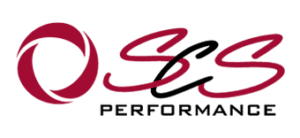In Business, Cashflow is King: Managing Financial Flow
A well-used line in business – and for good reason, as without cash (or cashflow) in a business, it delivers the same result as a having a body without blood – SUDDEN DEATH!
I have seen mortally wounded businesses survive, simply because they had sufficient cashflow coming in the door to provide options. In some cases, the key objective was purely the opportunity to open the door again tomorrow.
There are a variety of ways to look after your cashflow – BUT FOR THIS POST we will cover one of the most fundamental and important cashflow aspects – being aware of it.
Boring as it may sound, a simple, regularly maintained process for monitoring your cash position and cashflow is a critical element for business success – and something that has been present in every successful business I have ever worked with.
So…..what do you need and where do you start to have good Cash Control?
Firstly; let’s dispel a couple of common myths,
– you don’t NEED a fancy system to monitor your cash – but they CAN help a lot.
– the balance of your bank account is NOT how much you can spend.
– banks WILL NOT always pay your cheques/drawings.
– NO ONE believes that the “cheque is in the mail”.
A workable Cash Control system needs to cover 4 things; Monitoring (the How), Frequency (the When), Capture (the What) and Use (the Why)
Monitoring (the How)
A simple manual system, used daily and reviewed by the owner/director is going to be far more valuable that an expensive software system which is not used (or worse, not kept up to date). With today’s technology, downloading bank statements to assist with reconciliations is pretty easy, as is basic forward projections using a spreadsheet package. The key with both of these is that they are used frequently and that data is input consistently and accurately. For the micro/small business end, this is more than enough to give you the visibility you need. For the small/medium segment with their larger number of transaction items, then an appropriate software package is going to save time and improve accuracy.
Frequency (the When)
My general rule is that the tighter your cash position, the more frequently it needs to be monitored. For a business that is in a “stressed” state, then daily is necessary as every dollar is critical, however for a “normal” business with stable trade, I find that weekly reporting is generally sufficient (albeit you may choose to input data daily if that is more convenient).
Capture (the What)
For good Cash Control reporting you need to be able to see two things;
1. What is the position today – a reconciled balance of your bank accounts along with a total of any physical cash being maintained. Knowing what the position is today is important as this is “ground zero” for your projections – so it must be correct.
2. What the position is likely to look like over the projection period. At a basic level, your projections should include expected deposits (from sales, debtor collections etc), and payments (creditors, loan & lease payments, tax etc). Projections can become very complex if you want them to, remembering that with complexity comes a time commitment, so strive for a balance of “time in” v “value out”.
# Both points should reference any available overdraft limit if you use one.
Use (the Why)
In part, this will come back to the stability of your business – but quality Cash Controls mean that you can have confidence in knowing what you can spend – and when. If you have a very stable level of trade and have a bit of a cash buffer, then weekly monitoring is all you need. If your business is changing (up, down or seasonal), then I recommend referring to your monitoring tools for any major payments along with a good review of the detail weekly. What you are looking for are any points where you may overdraw your cash resources/overdraft limit – or come close to it. Early warning of these situations enables you to take action now – while you still have time to do it.
So now challenge yourself about your own business – in the last week have you:
– completed or reviewed your bank reconciliation?
– checked or updated your cashflow for the forward month or quarter?
– considered how much wastage (aka additional expense) is in your business if you are not doings these?
As a point to close on – CASH IS THE LIFEBLOOD OF ANY BUSINESS.
Learning and using sound Cash Control practices will provide long lasting benefit to your business – limiting “blood-loss”, building business resilience, and all the while….. saving you time, money and heartache!












